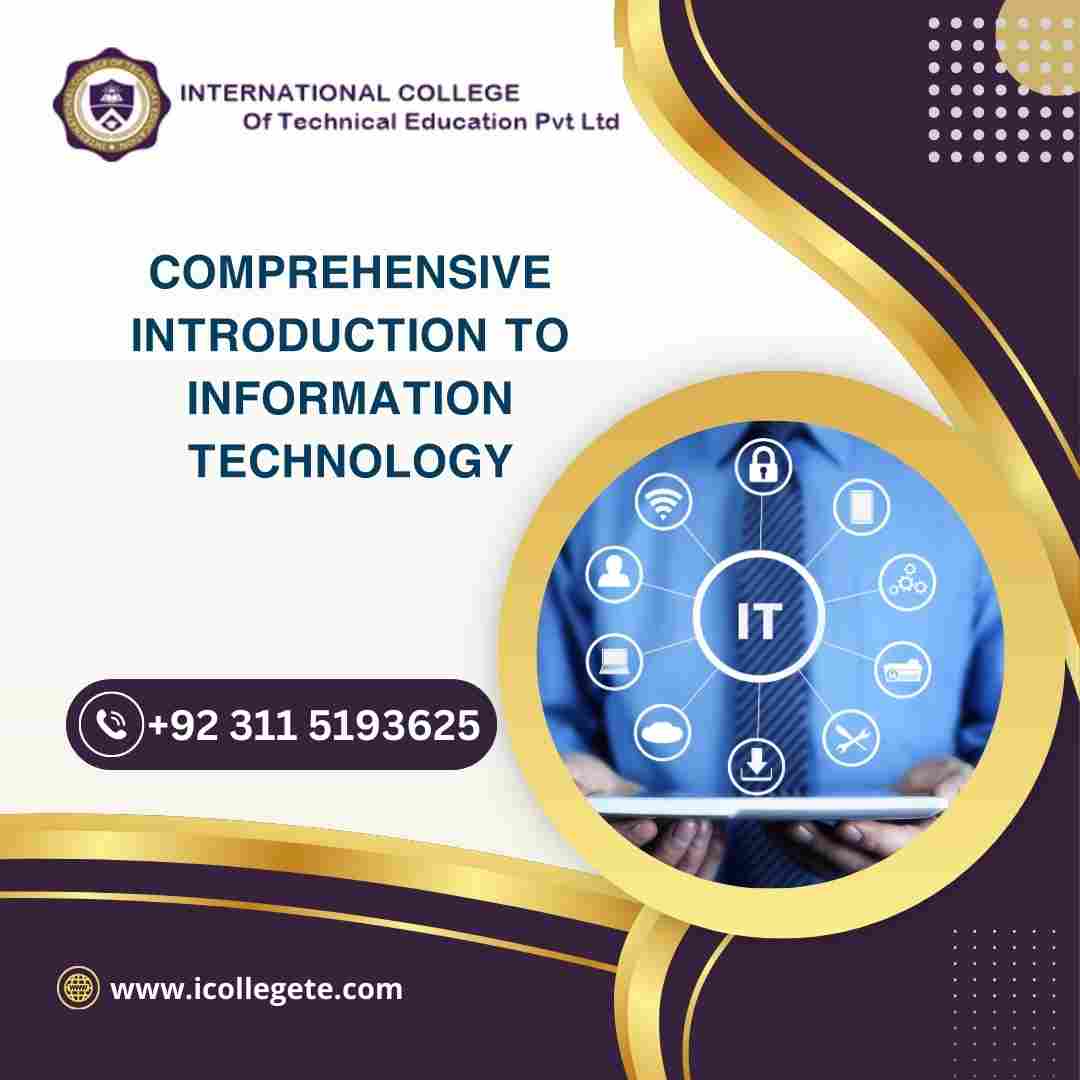
CIT course in Rawalpindi
In today’s rapidly advancing technological landscape, the demand for skilled professionals in Information Technology (IT) has never been higher. If you’re intrigued by the digital realm and eager to embark on a journey of innovation and problem-solving, a course in Computer Information Technology (CIT) might be your ticket to a rewarding and dynamic career.
Course Benefits:
A CIT course equips individuals with the knowledge and skills needed to navigate the ever-evolving world of technology. Among the myriad benefits of pursuing a CIT course are:
- Versatility: CIT courses cover a broad spectrum of topics, providing students with a versatile skill set applicable in various industries.
- In-Demand Skills: In an era dominated by digital transformation, CIT courses focus on programming, networking, cybersecurity, and database management, ensuring graduates possess skills that are in high demand.
- Problem-Solving Prowess: Students learn to analyze complex problems and develop effective solutions, a crucial skill in the fast-paced world of IT.
Learning Outcomes:
Throughout a CIT course, students can expect to achieve the following learning outcomes:
- Programming Proficiency: Mastering programming languages such as Java, Python, or C++ to develop robust and efficient software applications.
- Networking Expertise: Understanding the intricacies of network architecture, protocols, and security measures to create and maintain efficient communication systems.
- Cybersecurity Knowledge: Learning to safeguard digital assets by implementing security measures and protocols to counteract potential threats.
- Database Management Skills: Gaining proficiency in database design, administration, and optimization for efficient data storage and retrieval.
Study Units:
CIT courses typically encompass a variety of study units, including:
- Introduction to Programming
- Computer Networks and Security
- Database Management Systems
- Web Development
- IT Project Management
- System Analysis and Design
Who is This Course For?
A CIT course is ideal for:
- Tech Enthusiasts: Individuals passionate about technology and eager to contribute to the ever-growing IT landscape.
- Career Switchers: Professionals looking to transition into a dynamic and high-demand field with abundant job opportunities.
- Students Seeking Future-Proof Careers: As technology continues to advance, a CIT course provides a foundation for a career that is less susceptible to automation.
Future Progression:
Upon completing a CIT course, graduates open doors to a myriad of exciting career paths, including:
- Software Developer/Engineer: Crafting innovative solutions through programming and software development.
- Network Administrator/Engineer: Managing and optimizing computer networks for seamless communication.
- Database Administrator: Overseeing the design and maintenance of databases for efficient data management.
- Cybersecurity Analyst: Safeguarding digital systems against cyber threats and attacks.
- IT Project Manager: Leading and overseeing IT projects from conception to completion.
In conclusion, a CIT course is not just a learning journey; it’s a gateway to a world of possibilities in the rapidly evolving field of Information Technology. Whether you’re a tech enthusiast, a career switcher, or a student with an eye on the future, a CIT course can set you on the path to a rewarding and future-proof career. Embrace the digital era and embark on a journey of innovation and endless opportunities!